My father is a man of few words.
Unless there are homemade fried peanuts around, even better if they are paired with Chinese rice wine, that’s when he unleashes the stories of our ancestors.
They were fierce Mongolian cavalrymen fighting to unify the Jurchen tribes in 1603; they were the Manchurian soldiers waiving the Plain Blue Banners leading their clans into Beijing in 1644; they were the complacent royal families who played with birds in cages in 1868; they were the penny-pinching city dwellers praying to keep their heads on their shoulders after the Qing dynasty surrendered to become part of the Republic of China in 1912…
I suspect these lightly salted crispy nuts in red coats contain some magical enzymes that, once bound to their receptors in my dad’s stomach, a secret chat box within him is unlocked.
And our ancestors couldn’t wait to borrow his voice to relive their glory.
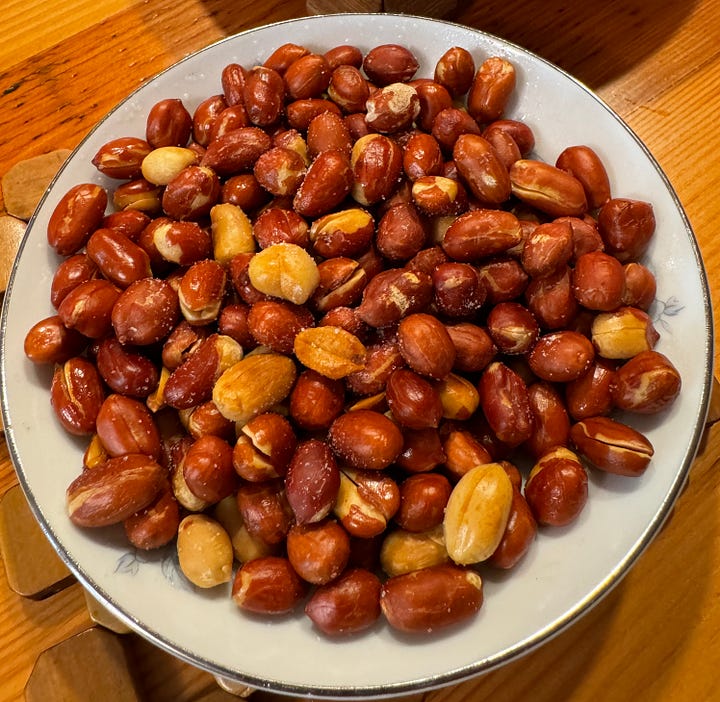
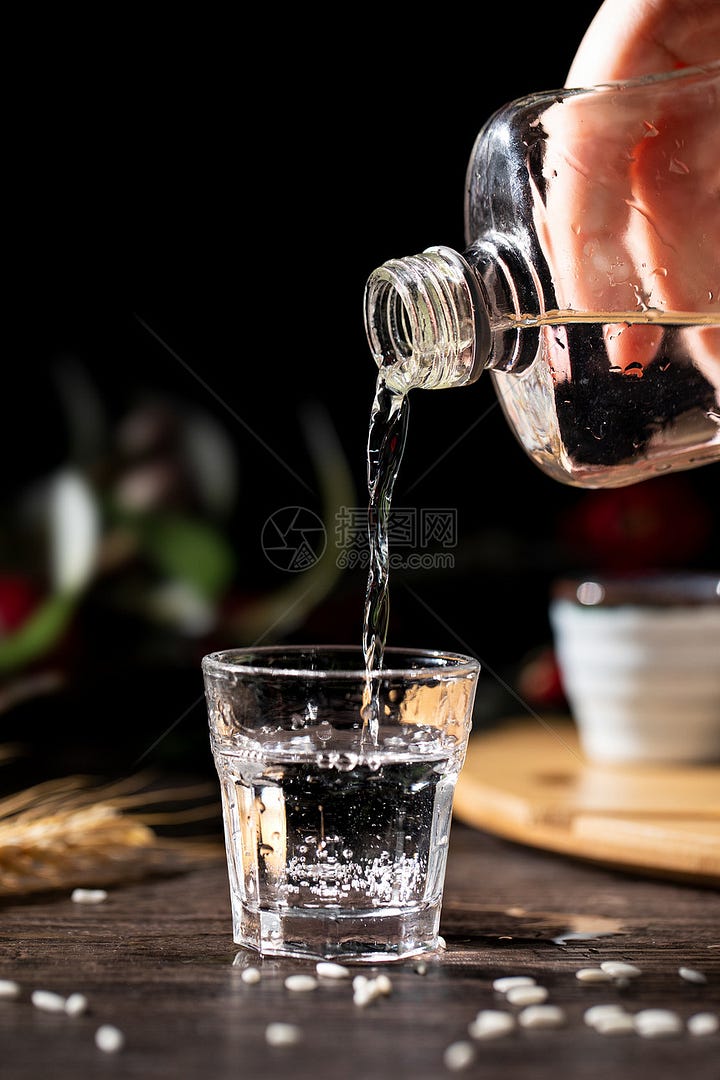
“Even when men ruled the world, women have always ruled our households,” my father said, popping a peanut into his mouth. “Because they are just so mighty!”
There it goes, I thought, one magical enzyme sent down to search for its receptor. And I was eager for it to find it.
“Your tai nai nai (Mandarin for ‘Great-Grandmother’) was the mightiest of them all!” He slurped the smallest amount of rice wine, made a face, and then hissed, as everyone must do when drinking the high-proof spirits passed down from 800 years ago.
“Tssss….”
My eyes grew big when I heard this sound. Yes! He is about to tell Tai Nai Nai’s story! — a family legend whose heroic actions I’ve heard hundreds of times. But every time I hear it again, a sense of pride and dignity runs down my spine and boils in my blood.
I sat up straight, leaned forward, and then asked with the keenness of my puppy when I was about to throw a ball for a game of fetch.
“What was tai nai nai’s name, dad?”
Say it, say it! My (metaphorical) tail wagged furiously.
“Well…” He picked up another peanut with his chopsticks. Its toasty dark red skin made the slightest rustle as he did.
“Her name was Benovolence,” my father turned his wrist and sent the peanut flying into his mouth (the best turning-of-the-wrist suture technique I’ve learned), then started to chew with his eyes closed.
You know that feeling when you rewatch your favorite movie or read your favorite book for the 574th time? And you can’t wait to hear or read that one line that concludes the best part of the scene?
Yes. It was with that great pleasure, I joined him in unison:
“And we are all her legacy!”
Everything fell perfectly into its place.
I can’t wait for the 575th time.
When I first posted the story on Twitter almost a year ago, it quickly became “viral.” Millions of people read it. And they wanted to know more about my family legend. So, I wrote her story in my blog and newsletter.
Many commented that Tai Nai Nai’s story needs to be turned into a children’s book. Some even sent me recommendations for illustrators! (Thank you!) I was overwhelmed with positive feedback and elated to see my ancestors’ stories transcend time and cultures.
A year later, I am proud to announce that my family legend is going to become a children’s book titled Why We Eat Fried Peanuts: A Celebration of Family and Lunar New Year Traditions, coming out in January 2025!
📖Are you ready for the most adorable book cover??📖
✨Are you??✨
😍Here it is!!😍
Illustrated by the amazing Sian James, an established children's book illustrator from Hong Kong, Why We Eat Fried Peanuts is published by becker&mayer! kids (Quarto) and arrives just in time for the next Lunar New Year celebration.
It’s a perfect gift for any child or their parent with an AAPI connection or who is interested in AAPI traditions and pride. Through the story of Tai Nai Nai, young readers can learn about Chinese history, culture, and language.
And, you might just find my mama’s recipe for fried peanuts in it!
Might!😍
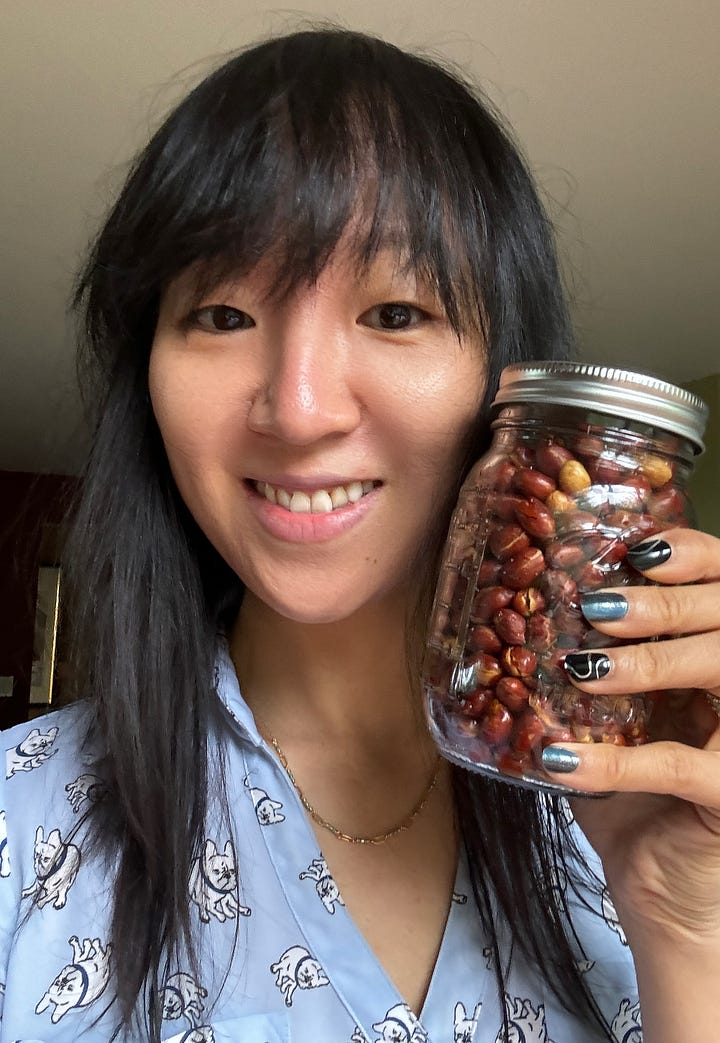
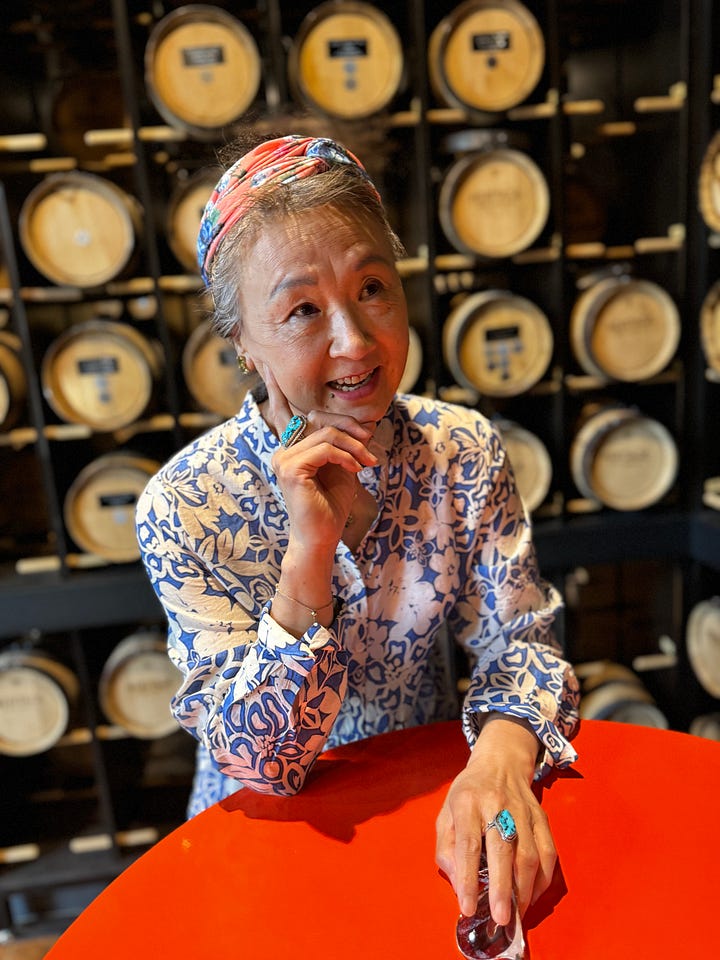
One of my father’s earliest memories is of his mother preparing for a long trip to visit Tai Nai Nai at her tomb in the countryside on Tomb Sweeping Day or Qingming Festival.
My dad fiddled around with his chopsticks in the plate of fried peanuts, looking for the “perfect” one — one with just the right combination of oil, salt, lightly brown coloration, and the subtlest separation of the halves.
(But if you ask me, every peanut my mom makes is perfect.)
“For a 30-mile trip one-way, my mother had to set off in the middle of the night to make it there and back in a day.” Satisfied with his find, he popped the peanut in.
In the 1950s and 1960s, the fastest transportation my family had was a 28-inch old-fashioned bicycle.
My grandmother had four sons. My dad is number three. In the early 1960s, my dad was too young to make the pilgrimage to sweep Tai Nai Nai’s tomb with his mother and older brothers. He considered it a great loss.
“On the front frame sat my oldest brother, and on the backseat, my second oldest brother,” my father recalled with a slight flavor of jealousy still, “and one of them held onto food for the day, the other one, water.”
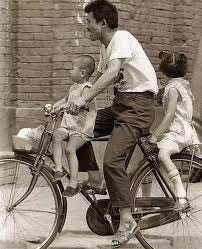
This was no small trip. It was a solemn ceremony.
To make it to the graveyard at a decent time, my grandmother would corral the older boys at 3 AM. Then they would try to get to the countryside by noon. After spending a few hours at the tombs to sweep and weed, the kids knelt to talk to their ancestors. They then made the exhausting trip back again.
“They were lucky if they could make it back before dark.” My dad said. “It was 披星戴月 in its truest sense!”
披星戴月, “to put on the stars and to wear the moon,” is a Chinese idiom used to describe someone working long hours, therefore leaving the home early in the morning when the stars are still out and coming back late at night when the moon is already up.
What a vivid phrase!
I imagined my small-framed grandmother peddling tirelessly through the night and into the morning every year.
Perhaps she sang songs to the boys to make sure they (or the food/drink) hadn’t fallen asleep and off the bike.
Perhaps she looked up to the stars to help lead her way.
Perhaps she let the moonlight land on her shoulders so she wouldn't get scared.
In elementary school, I sat on the front frame of my dad’s 28-inch bicycle to go to calligraphy classes. It was a one-hour trip each way. The teacher let my dad sit in the back of the classroom to learn the brush strokes with the pupils. He was thrilled.
In middle school, I sat in the back seat of my mother’s 28-inch bicycle to attend weekend science classes. It was always on the hottest summer days. My mother kept promising to buy me ice cream but never did. After seeing her hand over all our weekly spare money to the private tutors before each class, I never blamed her.
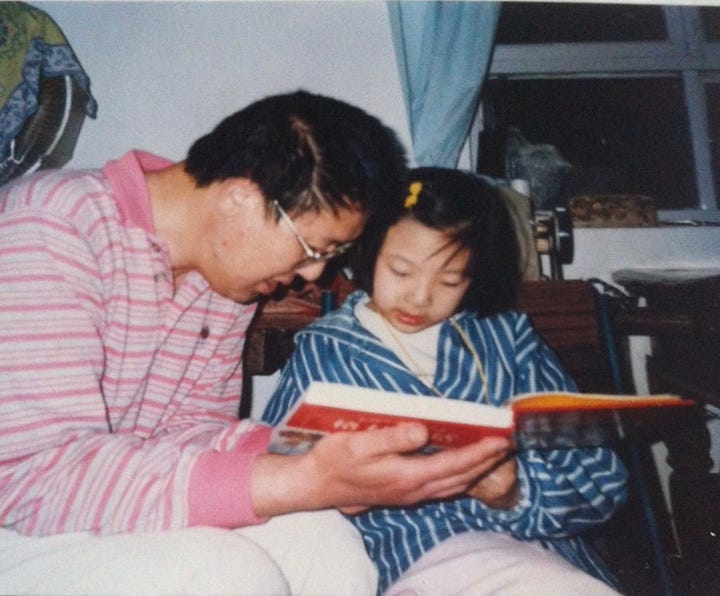
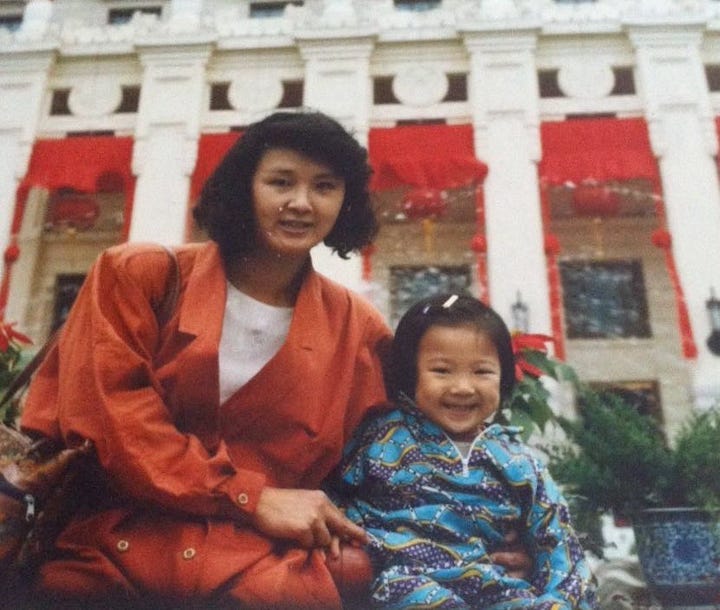
Many years later, I was 5,000 miles away from my ancestors’ land when I picked up my parents from the Seattle Airport. After living apart for almost 14 years, I finally had the means to move them from Beijing, China to live with me in the U.S.
It was after dark when they arrived. We had a 2-hour drive to our new house. Exhausted, my parents fell asleep in the backseat of my car shortly after I started the drive.
I adjusted the rearview mirror to look at them: my mom’s hair was thinning more now, and my dad had more wrinkles than I remembered.
A sense of guilt washed over me and my eyes started to water.
I shook my head and turned the mirror back to its original place.
That was when I saw the stunning, full moon.
A lifetime ago, my grandmother carried her two sons on her bike to bring them closer to their ancestors.
She hoped Tai Nai Nai would watch over her family.
She wore the moon on her shoulders.
Now, I drove my parents in my car to bring them closer to me.
And I knew.
Our life together wouldn’t have been possible without the blessing and protection of my mighty ancestors.
In the name of family, honor, and legacy, I now proudly wore the moon on my shoulders.
“How is THAT going?” Many ask me when I tell them my parents live with me.
“Like life has finally come full circle,” I answer.
Thank you for reading! Today, 8/19/2024, there will be another full moon!
If you will be or are currently on the way somewhere — traveling, working, getting lost, getting found, etc — may the gentle moonlight keep you brave.
May your ancestors guide your ways.

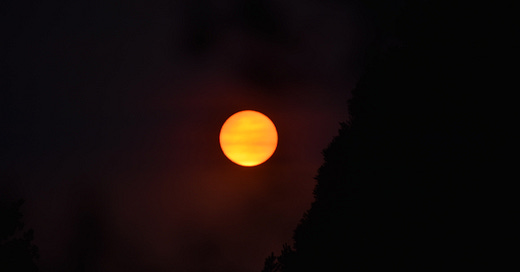


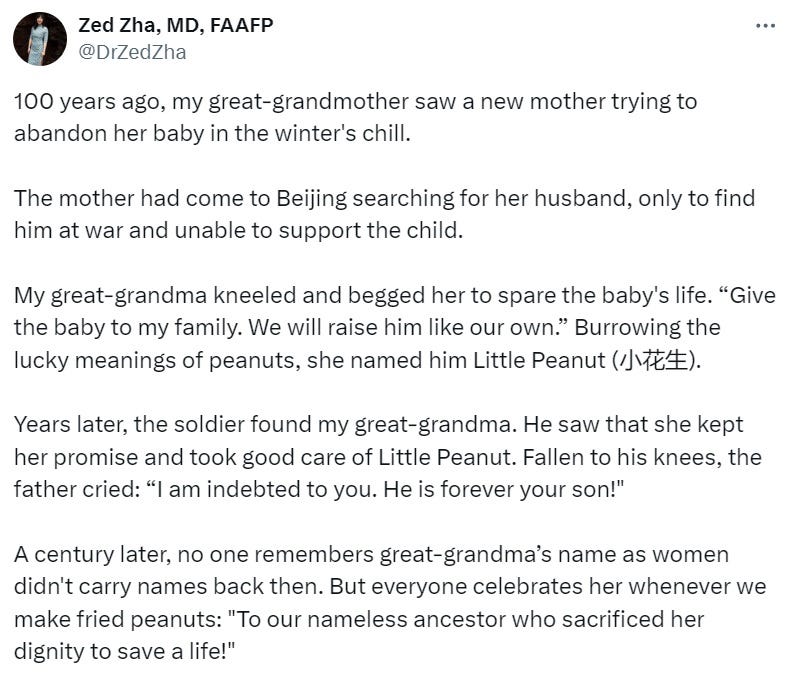
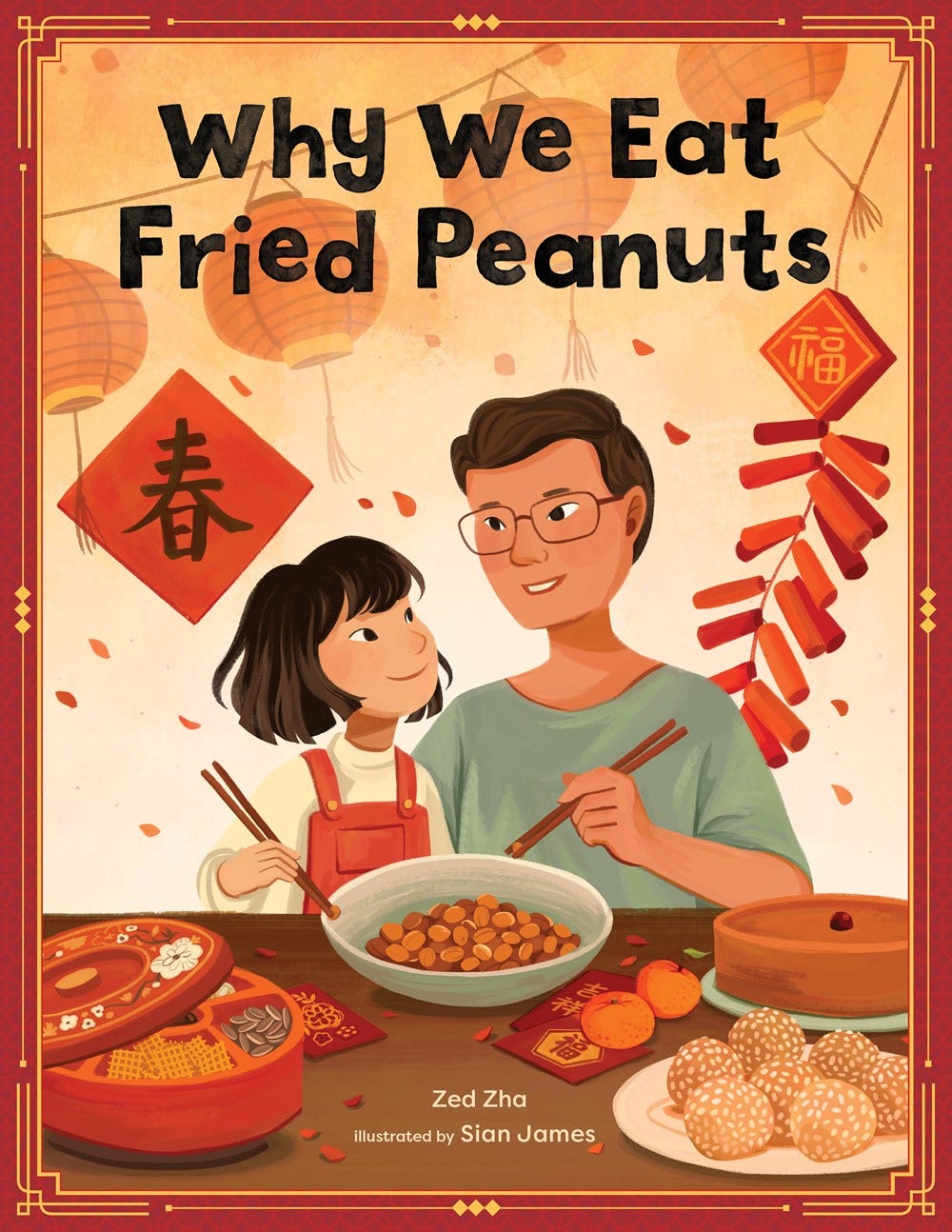

🌕 thank you for this story/memory/history. absolutely beautiful.
How beautiful, touching and utterly engaging! Gorgeously written with such humour, sweetness and quiet power. I enjoyed immensely!